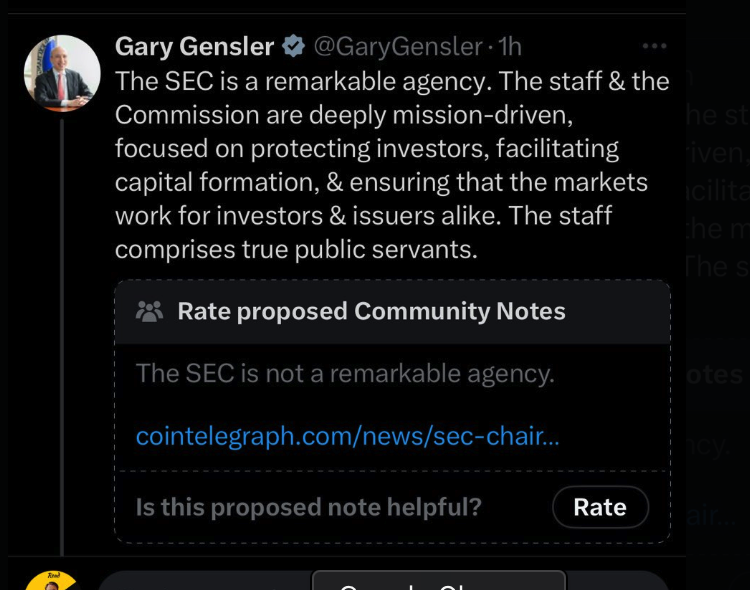The current chairman of the U.S. Securities and Exchange Commission (SEC), Gary Gensler, announced on his X account at 2 a.m. this morning (22nd) that he will resign on January 20th, and this post also caught the attention of the current head of the government efficiency department (DOGE), Musk, who left a thought-provoking comment below, sparking a lot of discussion about the love-hate relationship between Musk and the SEC.
Musk believes the SEC is a useless unit
Just a few minutes after Gary Gensler's post was released today (22nd), Musk immediately responded to the news, saying that the position represented by Gary Gensler at the SEC seems to be a sinecure with little actual function:
Is it true that the SEC only works one day a month in the office?
Is it true that the SEC only works one day a month in the office?
— Elon Musk (@elonmusk) November 21, 2024
Interestingly, with Musk's comment, there appeared to be some interesting community notes on Gary Gensler's post, indicating that many people believe the SEC chairman Gary Gensler's praise of the SEC may not be consistent with the facts, and many people are verifying this news in the community notes.
The SEC is not an outstanding and excellent unit

The feud between Musk and the SEC
Although Musk did not explicitly state it, based on his past feud with the SEC, he may have long believed that the SEC is a useless department. In fact, the SEC has always interfered with Musk's policies at Tesla, failing to achieve fairness to shareholders, and in 2018 he was fined $20 million by the SEC for a tweet, ultimately leading to his resignation as Tesla's chairman, as he was suspected of wanting to take Tesla private.
Before the Twitter acquisition, he also faced an SEC investigation into the disclosure of his stock, and Musk also responded that the SEC officials were "profiting from short-selling Tesla".
Recently, Musk has also encountered investigations from the SEC and the Delaware state regarding the early compensation plan he had in place before Tesla's IPO, with the relevant investigative agencies believing that the compensation plan approved by the board of directors in 2018, which included about $56 billion in new stock options and other cash plans, was not transparent at the time, and therefore the Delaware court ruled that if the current shareholders do not approve, the compensation plan for Musk from that year cannot be executed.
Finally, in June this year, Musk was also able to convince shareholders to regain a large number of Tesla shares, but during this period, he had already created a significant rift with the SEC-related agencies.







